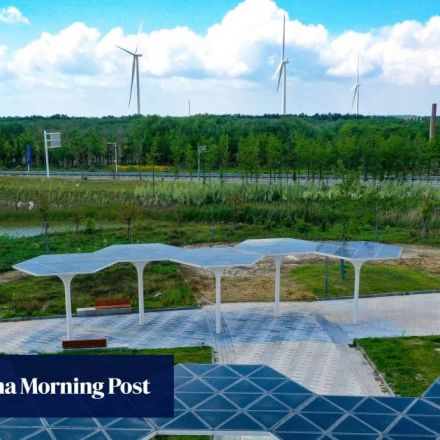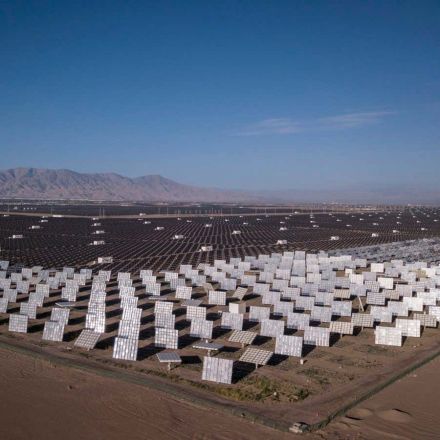How Solar Power is Revolutionising Irrigation Systems in Agriculture?
For years, farmers have danced with the whims of rain, their livelihoods dependent on unpredictable downpours. But a new dawn is emerging, powered by the sun's abundant energy. Solar-powered irrigation systems are transforming agriculture, bringing in an era of sustainability, economic empowerment and increased food security.
Impact of Solar Power Changing Irrigation Systems in Agriculture
The effect of solar irrigation extends far beyond simply replacing conventional energy sources. Here is a deeper look at the ripple effect solar power is having on the agricultural landscape:
Empowering Smallholder Farmers: Solar irrigation systems are often modular and scalable, making them accessible to small and medium-scale farmers. This newfound independence allows them to cultivate crops during dry seasons, diversify their produce and increase their incomes.
Water Conservation: Solar-powered irrigation systems can be coupled with smart irrigation technologies. Sensors monitor soil moisture levels, ensuring crops receive the precise amount of water needed, thereby minimising water waste - a crucial factor in drought-prone regions.
Improved Crop Yields: With a reliable water supply, farmers can ensure optimal growing conditions for their crops. This translates to healthier plants, increased yields, and reduced risks of crop failure.
Climate Resilience: As the world grapples with climate change, solar irrigation systems offer farmers a tool to adapt. By mitigating dependence on rainfall, they can cultivate crops even during periods of drought.
The Problems with Traditional Irrigation System
Conventional irrigation systems often rely on diesel or grid-based electricity. This dependence comes with a slew of challenges:
Costly Dependence: Fluctuating fuel prices can significantly impact a farmer's bottom line.
Environmental Impact: Fossil fuel-powered irrigation contributes to greenhouse gas emissions, accelerating climate change. Grid Instability: In many areas, particularly remote regions, access to reliable electricity is a constant struggle. This disrupts irrigation schedules and jeopardises crop health. Solar Power Irrigation Systems Solving the Challenges
Solar-powered irrigation systems provide hope, addressing these issues head-on:
Cost Savings: Once the initial investment is made, solar panels require minimal maintenance, leading to significant long-term cost savings on energy bills. You can find 20 other ways to reduce electricity if you read this blog. Farmers are no longer at the mercy of uncertain fuel prices.
Sustainability: The sun's energy is a clean and renewable resource, mitigating the environmental impact of agriculture and greenhouse gas emissions compared to diesel-powered pumps.
Energy Independence: Solar systems empower farmers with energy autonomy, particularly in regions with unreliable grid infrastructure. They can irrigate their fields regardless of power outages.
Similar to farmers, homeowners can also install affordable residential solar panels with government schemes for subsidised solar installation under the PM Surya Ghar Yojana.
Global Adoption and Future Prospects of Solar-powered Irrigation Systems
The adoption of solar-powered irrigation is gaining momentum worldwide, driven by the need for sustainable and reliable agricultural practices. Several regions and countries are leading the way in embracing this technology:
India: In India, government initiatives such as the Pradhan Mantri Kisan Urja Suraksha evam Utthan Mahabhiyan (PM-KUSUM) scheme are promoting the use of solar pumps among farmers. These programs provide financial subsidies and support for the installation of solar-powered irrigation systems, reducing up to 90% of costs. This empowers millions of farmers to transition to renewable energy sources. For further details visit the PM-KUSUM official website.
Sub-Saharan Africa: In Sub-Saharan Africa, where access to electricity is limited, solar irrigation systems are providing a lifeline to rural communities. Organisations and governments are working to increase the availability of solar-powered pumps. However, despite the availability of abundant surface and groundwater resources and their multiple advantages, irrigation development in the region remains low at only 6 per cent.
Other Regions: Similar initiatives are underway in various parts of Asia, Latin America and the Middle East, where solar irrigation is seen as a viable solution to the challenges of traditional irrigation methods. These efforts are supported by international development agencies, non-governmental organisations, and private sector investments, all working towards a common goal of sustainable agricultural development.
As technology advances and becomes more accessible, solar-powered irrigation systems have the potential to revolutionise agriculture on a global scale. Continued efforts to address the challenges of high initial costs and technical expertise will be crucial in ensuring widespread adoption.
With the support of government initiatives, financial incentives, and capacity-building programs, solar-powered irrigation systems can pave the way for a more sustainable and secure future for farmers worldwide, ensuring food security for generations to come.



























Join the Discussion